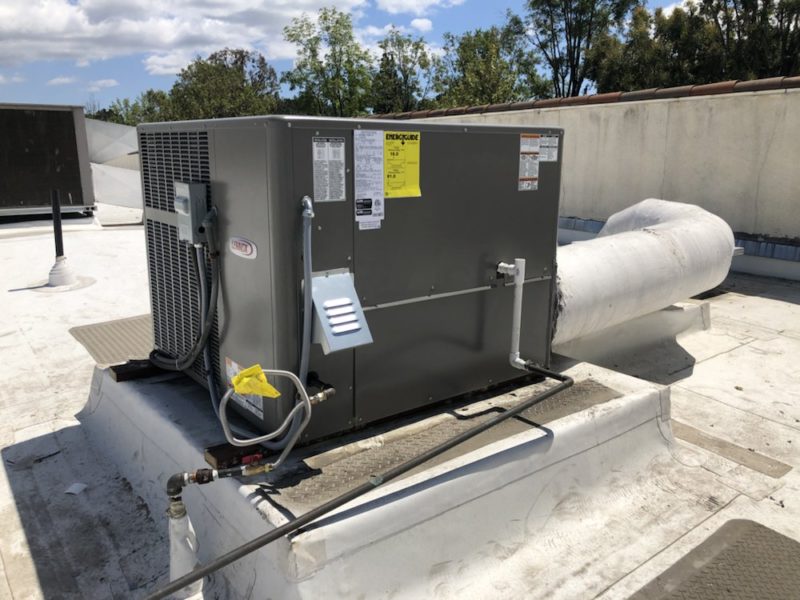Las Vegas, known for its scorching summers and mild winters, poses unique challenges and requirements for heating, ventilation, and air conditioning (HVAC) systems. On average, temperatures in the desert city can soar above 100 degrees Fahrenheit during summer, making a reliable HVAC system not just a luxury, but a necessity for both residential and commercial properties. This article delves into the intricacies of HVAC systems in Las Vegas, exploring how they function, the
specific needs due to the local climate, maintenance tips, and the latest trends in HVAC technologies.

Understanding HVAC Systems
HVAC stands for Heating, Ventilation, and Air Conditioning. This system is crucial in regulating the indoor temperature, ensuring air quality, and providing comfort to inhabitants. Here’s how each component works:
- Heating: In Las Vegas, heating might not be as extensively used as in colder climates, but it remains essential during the cooler winter months. Heating systems can include furnaces, heat pumps, and boilers.
- Ventilation: This involves the exchange of indoor air with outdoor air, thus removing contaminants, odors, and excess moisture, and maintaining indoor air quality.
- Air Conditioning: Given the Las Vegas heat, air conditioning is the most crucial aspect of HVAC Las Vegas systems in the city. Air conditioners not only lower the air temperature and humidity but also improve the quality of air.
Las Vegas Climate and HVAC Needs
The semi-arid climate of Las Vegas includes less than 5 inches of annual rainfall and over 300 sunny days. The extreme summer temperatures and bright sunshine necessitate robust air conditioning systems. During winter, nighttime temperatures can dip below freezing, although this is rare, making it essential for systems to be versatile enough to handle significant temperature variations.
Types of HVAC Systems Used in Las Vegas
- Central Air Conditioners: These are particularly popular in Las Vegas for their ability to cool large spaces efficiently. They operate through a network of ducts to distribute cool air.
- Heat Pumps: Heat pumps are effective for both heating and cooling homes and are energy-efficient. They move heat from the cool outdoors into your warm house during the winter and vice versa during the summer.
- Ductless Mini-Split Systems: Ideal for homes without ductwork, these systems provide an option for targeted cooling and heating in different zones of the house, which enhances efficiency and control.
- Evaporative Coolers: Also known as swamp coolers, they are more suited to the low-humidity days typical of Las Vegas. They cool the air by evaporating water, adding moisture to the air, which can be beneficial in the dry desert climate.
Energy Efficiency and Sustainable Practices
Energy efficiency is crucial in a city like Las Vegas, where the extreme temperatures can lead to high energy consumption and, consequently, high utility bills. Modern HVAC systems in Las Vegas are equipped with advanced technologies such as:
- Programmable Thermostats: These allow for the automatic adjustment of temperatures according to preset times, reducing energy use when cooling or heating is not needed.
- SEER Ratings: The Seasonal Energy Efficiency Ratio (SEER) ratings indicate the efficiency of air conditioning units. A higher SEER rating means more efficiency and lower energy consumption.
- ENERGY STAR Rated Appliances: Choosing ENERGY STAR certified appliances can lead to significant savings in energy costs and are better for the environment.
Maintenance Tips for HVAC Systems in Las Vegas
Maintaining an HVAC system in optimal condition is essential in extending its lifespan and ensuring it runs efficiently. Here are some tips:
- Regular Filter Replacement: Filters should be replaced every 30-90 days, depending on usage and type of filter. Clean filters improve air quality and system efficiency.
- Scheduled Inspections: Professional inspections are recommended at least twice a year to ensure all parts of the HVAC system are working correctly.
- Sealing and Insulation: Proper sealing and insulation of ducts can improve system efficiency by up to 20%. This prevents the loss of cool or warm air and reduces the workload on the HVAC system.
- Checking Refrigerant Levels: Especially important for air conditioners, ensuring the correct refrigerant level is crucial for efficiency and performance.
Innovations and Trends in HVAC Technology
The HVAC industry, including in Las Vegas, is constantly evolving with innovations aimed at improving efficiency, sustainability, and user-friendliness. Some of the latest trends include:
- Smart HVAC Systems: These systems use IoT (Internet of Things) technology for better control over heating and cooling, often accessible via smartphones.
- Solar HVAC Systems: Utilizing Las Vegas' abundant sunlight, solar-powered HVAC systems can significantly reduce energy costs.
- Geothermal Heating and Cooling: Although upfront installation costs can be high, geothermal systems offer immense long-term savings and environmental benefits, making them an attractive option for sustainable home heating and cooling.
Conclusion
HVAC systems in Las Vegas are indispensable due to the extreme local climate conditions. Residents and business owners must choose adequate systems, maintain them properly, and embrace innovations that enhance efficiency and sustainability. Understanding the specific needs, opting for appropriate technologies, and adhering to maintenance schedules can lead to significant improvements in comfort, air quality, and cost savings, making life in the desert city much more pleasant and sustainable.